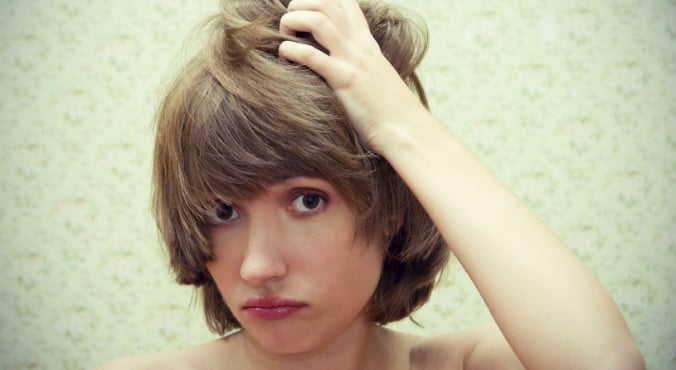
Image: iStock.
Cravings, cramps, breakouts, fatigue, crazy bowel movements — yep, periods can be accompanied by some decidedly unpleasant side-effects.
As if it’s not enough to deal with mood swings every single month, your period can also mess with your hair. Seriously, menstruation — is nothing sacred? For the love of tampons, could you not just leave our hair alone?
For some women, the arrival of their period is heralded by a marked difference in the way their hair looks and how it feels. The culprit for these bad hair days? Hormones, naturally.
Over your menstrual cycle, your body’s hormonal balance changes from week to week (and day to day). In the days leading up to your period, often including the first day of it, your levels of oestrogen and progesterone — the so-called “female hormones” — drop.
This leaves you with higher-than-usual levels of androgens, like testosterone, which can then result in a higher production of sebum. Also known as oil.
Watch: Dr Ginni Mansberg and Shelly Horton discuss the mystery of a lost tampon. (Post continues after video.)
“A little bit of sebum is totally normal and, in fact, necessary for gorgeous hair and glowing skin. But when its production goes into overdrive, it typically affects your scalp and your T-Zone,” ob-gyn Maggie H. Smith explains to Teen Vogue.
In other words, you’re probably going to experience more greasy, limp-looking hair around this time of the month. Along with that, your general head area can also be “much more sensitive” around the time your period shows up.